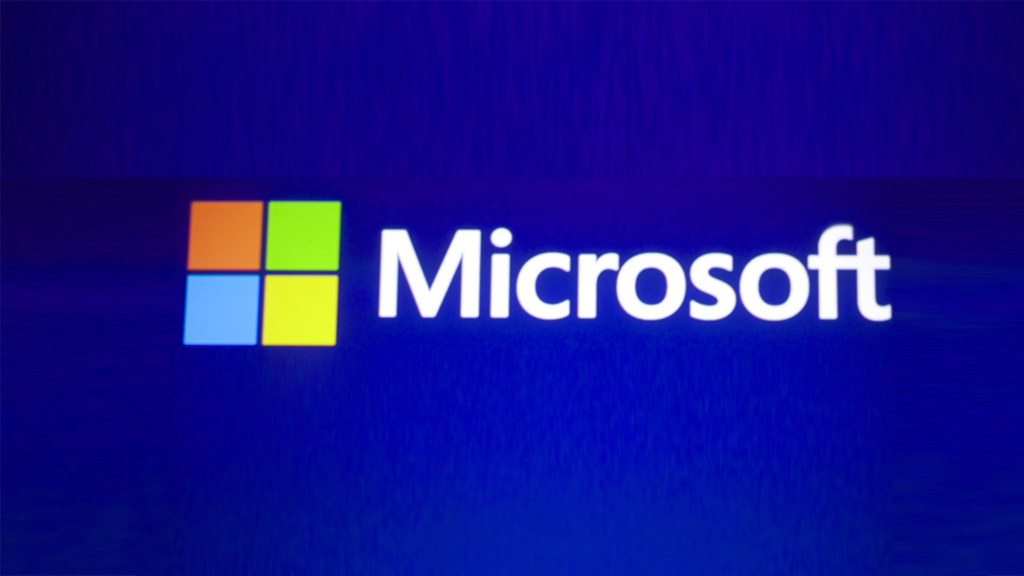
When it comes to technology, a single hardware unit, an ingenious piece of software, or an industry-leading idea can change prevailing trends in what can be called a tech-ecosystem.
The technological revolution seen in the last few decades is a testament to what the human mind is capable of achieving and while many players have contributed to the change, Microsoft remains one of the companies that constantly tops the list.
For an in-depth view of its operations in the country, The Express Tribune caught up with its Vice President for Europe, Middle East and Africa (EMEA) Public Sector Joseph Macri – a Microsoft employee since 1996.

With a realisation of the many hurdles in the way of businesses in Pakistan – a consumer market with one of the largest potential for Microsoft, Macri conveniently divided the problems into two categories.
“On one hand, we have a global agenda that deals with education, healthcare and employability-related issues, while on the other hand we are concerned about safety, transparency and energy-related issues prevailing in Pakistan,” he said, adding despite the problems, the company is avidly pursuing to attract both consumers and tech developers.

According to Net Applications, a web analytics firm, the market share of Microsoft’s four most recent versions of the Windows desktop operating system in October 2013 stood at 90.66%. Though the figures are hard to beat and gives the company a certain amount of safety, the latest trend of moving towards mobile computing, a section dominated by Apple’s iOS and Google’s Android, forces the company to step its game up.
“Through decades of experience, Microsoft’s knowledge base regarding market dynamics and technological advancements is strong enough to challenge the competition in every way possible,” the VP noted.
The world has moved on from having fewer companies with huge budgets to a cut-throat market that consists of a large number of companies that are trying to lead through innovation and not financial statements, according to Macri, whose company seems eager to introduce a cloud computing infrastructure in the country.
“Pakistan could introduce a national cloud-computing infrastructure in a number of ways. It can either follow the model of Egypt’s Ministry of Communications and Information Technology and implement the setup itself or find a sponsor to do so like Italy, which used the expertise of Telecom Italia,” Macri informed.
“Thirdly, and this is where we come in, the infrastructure can also be implemented by industry players.”
With the introduction of Office 365, Windows Azure and Windows Server 2012, the company is all set to take the latest developments head-on.
Handling larger data streams also means protecting clients from potential threats to their privacy. However, recent revelations about the snooping done by intelligence and surveillance agencies have also resulted in reluctance on behalf of potential consumers to embrace the change.
“Microsoft has never been party to any activity of the like. In fact, the company itself is one of the prime targets of cyber attacks,” revealed the company’s VP. “We realise that if a company is to grow, protecting customers’ privacy must top its priorities.”
CSR
As one of the world’s largest corporate organisations, Microsoft takes its social responsibilities very seriously and also carries out human resource development locally by catapulting both existing and budding developers and entrepreneurs to international markets.
According to Macri, the company achieved these feats in three parallel ways.
The company’s YouthSpark and STEM programmes attract around 300 million youngsters globally, with 21,000 from Pakistan. The company also runs two innovation centres in Lahore and Karachi, in collaboration with the Punjab Information Technology Board and Bahria University respectively.
Secondly, through its partners in learning programmes, Microsoft advocates new approaches to teaching and learning by using technology to support government policymakers, school leaders and educators.
Thirdly, the company provides financial support to social sector organisations like The Citizens Foundation. It has also provided $1.2 million to Pakistan to carry out flood relief activities to date.
Published in The Express Tribune, November 28th, 2013.
Like Business on Facebook, follow @TribuneBiz on Twitter to stay informed and join in the conversation.
1724657897-0/Untitled-design-(2)1724657897-0-405x300.webp)








1731884290-0/image-(9)1731884290-0-270x192.webp)







COMMENTS
Comments are moderated and generally will be posted if they are on-topic and not abusive.
For more information, please see our Comments FAQ